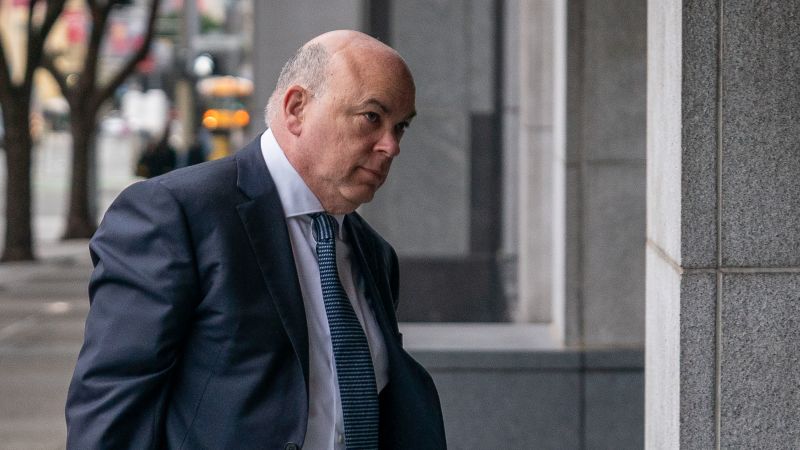The recent ruling from the UK High Court has created significant ripples in the tech industry. Hewlett Packard, now known as Hewlett-Packard Enterprise (HPE), has been awarded a staggering amount exceeding £700 million (equivalent to $943 million) from the estate of the late British tech magnate, Mike Lynch, and his former chief financial officer. This judgment follows a contentious legal battle that centered around alleged fraudulent activities connected to Lynch’s software company, Autonomy Corp.
The court’s ruling comes nearly a year after a devastating incident in which Lynch lost his life when his superyacht, the Bayesian, sank off the coast of Sicily. The occasion was meant to be a celebratory gathering with family and friends, marking Lynch’s recent acquittal in a separate criminal trial held in the United States. His passing, alongside that of six others during the maritime disaster, cast a long shadow over what had been an already tumultuous period in Lynch’s life.
At the heart of the matter is the sale of Autonomy Corp to HPE for a staggering $11 billion. Post-acquisition, HPE accused Lynch of engaging in fraudulent activities and conspiracy, arguing that the financials presented during the sale were grossly misleading. The British tech giant sought damages that could have reached as high as $4 billion in civil court, prompting a prolonged and complex legal battle. Judge Robert Hildyard presided over the case, which initially appeared in court in 2022. Though the findings leaned mostly in HPE’s favor, it was noted that the final award would likely be “substantially less” than what HPE had originally claimed.
Judge Hildyard’s judgment was delayed owing to a tragic maritime incident involving Lynch’s yacht, which sank during a storm on August 19, resulting in multiple fatalities. Once the ruling was delivered, Judge Hildyard expressed his heartfelt sympathies to Lynch’s family, acknowledging the immense loss they had suffered.
In his written judgment, Judge Hildyard determined that HPE experienced a financial setback to the tune of £646 million, which reflected the difference between Autonomy’s purchase price and the amount that HPE would have paid had the company’s “true financial position been accurately represented.” Additionally, HPE is owed another £51.7 million related to personal claims of deceit and misrepresentation against Lynch and his finance director, Sushovan Hussain. The damages account for various loss categories, including a further $47.5 million for additional grievances.
Hussain has a tumultuous legal history of his own, having been convicted of wire fraud and various other charges in a US court in 2018, which resulted in him receiving a five-year prison sentence. The implications of both Lynch’s and Hussain’s actions have been significant for HPE, with the company eager to close this chapter of its history.
In an official statement following the ruling, HPE expressed satisfaction with the court’s decision, noting that it signifies a progressive step towards resolving the ongoing dispute. The company is looking ahead to an additional hearing, where relevant details such as interest, currency conversions, and the possibility of appealing the ruling by Lynch’s estate will be discussed. This hearing is scheduled to take place in November, marking the next phase of what has been a lengthy and emotionally charged saga.
Posthumously, Lynch’s comments about the initial claims made by HP have surfaced, wherein he contended that the significant discrepancy in damages—reported initially as being in the billions—was overstated by 80%. He argued that the damage endured by Autonomy was primarily attributed to HP’s own failures, thereby challenging the narrative put forward by HPE. This assertion adds another layer to the complex narrative, highlighting the fraught relationships and high stakes involved in corporate acquisitions and the fallout from alleged misconduct.
As the legal proceedings unfold, the consequences of this case will likely serve as a cautionary tale within the tech sector, shedding light on the intricate interplay between corporate valuations and ethical governance.










